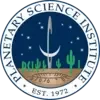Venus offers scientists a relatively close opportunity to learn more about exoplanets found far beyond our Solar System, says PSI Senior Scientist David Grinspoon. Grinspoon is co-author on the paper “Venus as a Laboratory for Exoplanetary Science,” where he contributed current knowledge, and questions, about the atmospheric evolution of Venus based on his past research into the evolution of water and other atmospheric constituents on Venus and how this relates to the geological history. The paper has been accepted for publication by Journal of Geophysical Research: Planets.
Venus is an ideal and accessible exoplanet laboratory. Exoplanets orbit stars outside our Solar System, and are being studied as potential sites of habitability. Data from Venus have wide-reaching consequences for studying exoplanets, and may be applied to modeling planetary atmospheres, surfaces, interiors, and geological processes that contribute to detectable atmospheric signatures.
“This paper is a review of the current state of knowledge – and lack thereof – about Venus and how it relates to questions about exoplanets, and the opportunity Venus represents to put our exoplanet knowledge in better context,” Grinspoon said.
Boundaries of habitability are best understood through the study of the extreme environments present on Earth and Venus, and there are many outstanding questions regarding Venus that are critical to answer in order to better constrain models for exoplanets, the paper says.

